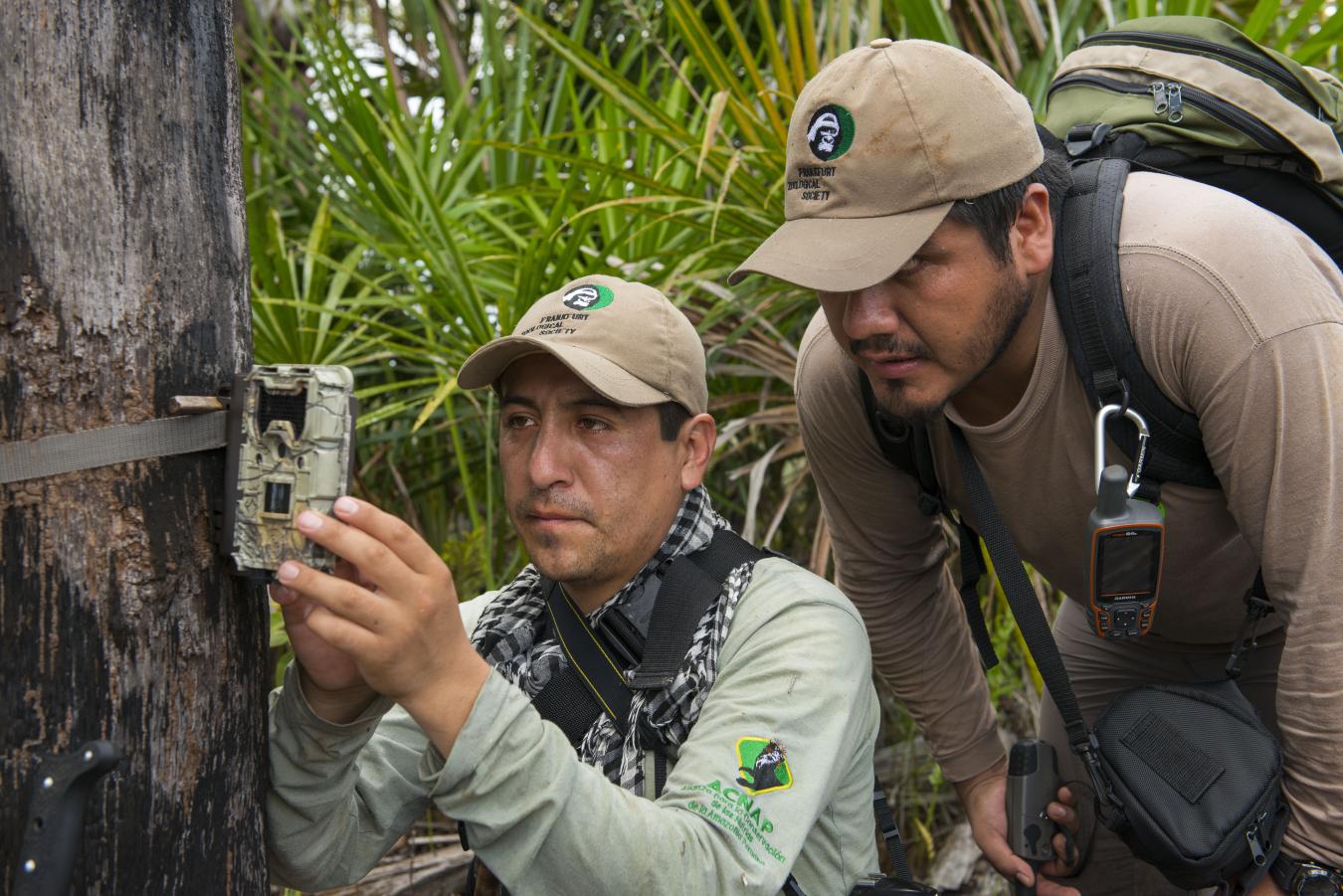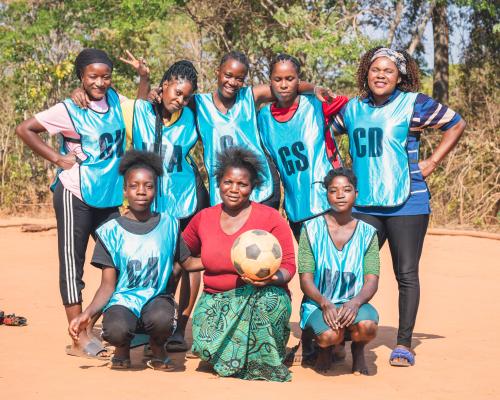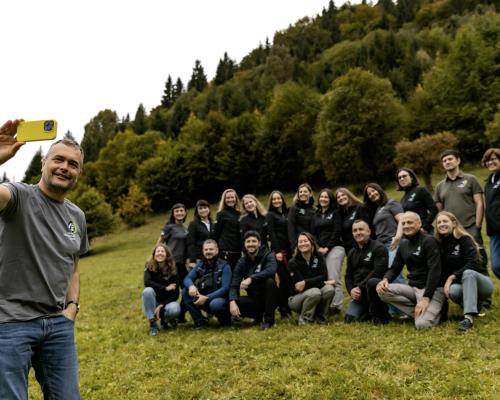At Frankfurt Zoological Society (FZS), conservation is about constantly adapting to new challenges. By aligning decades of field experience with the globally recognized Conservation Standards, we are creating a more structured way to measure impact, learn collectively, and refine our strategies.

FZS Joins the Conservation Measures Partnership to Strengthen Global Conservation Impact
Top image: Danilo Jordán (left) and Kevin Ibañez checking a camera trap on Pampas del Heath, Bahuaja Sonene NP, Peru. © FZS/Daniel Rosengren
The pressures facing nature today, from climate instability to biodiversity collapse, require accountability, collective learning, and more strategic approaches.
That is why we are proud to share an important step forward: FZS is now an official member of the Conservation Measures Partnership (CMP).
FZS has a long track record of monitoring wildlife populations, supporting protected area management , and engaging communities. What is changing now is how we are strengthening and systematizing this work.
The Conservation Standards, developed within CMP, give us a globally recognised framework to bring decades of FZS experience into a shared structure. This allows us to link our field data more explicitly to conservation impact, make better use of the lessons we have already gathered, and refine our strategies with stronger evidence.
Monitoring and evaluation are not new for FZS. What is new is our commitment to the Conservation Standards as a shared language across all projects and to the global community of practice that comes with it. By joining the Conservation Measures Partnership, FZS benefits from collective learning, stronger accountability, and access to proven tools that make our conservation efforts more effective.
For example, in Mozambique’s Marromeu Complex, Nyerere-Selou National Park and the Legacy Landscape Manu-Purus, where we are now piloting the full adoption of the Conservation Standards as a strategic planning and MEL tool, building on existing monitoring systems. This framework guides how we define success, evaluate ecological health, and involve local communities more deeply in shaping conservation outcomes.
Joining CMP is not only about adopting a framework. It is also about embracing collaboration. As members, we commit to sharing our experiences openly, testing new approaches, and being transparent about what works and what does not.
This spirit of honesty and collective learning strengthens the conservation sector as a whole. It allows us to face challenges together and ensure that nature is protected through knowledge that is widely shared.
For the future, FZS aims to adopt the Conservation Standards as a common methodology to guide planning, reporting, and measuring impact. This approach reflects our belief that effective conservation depends on learning, accountability, and the courage to improve











